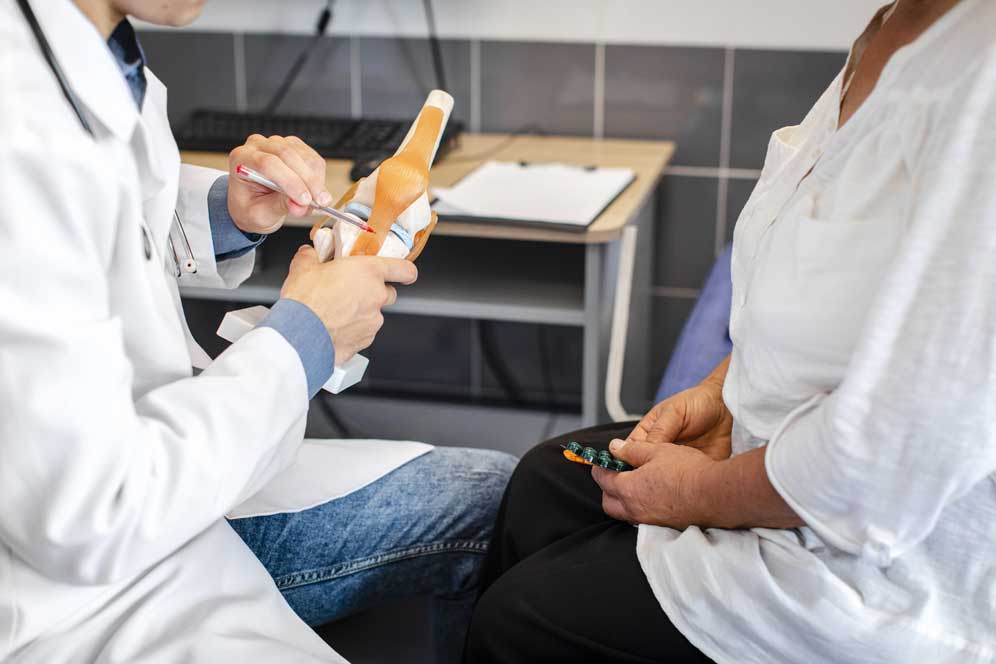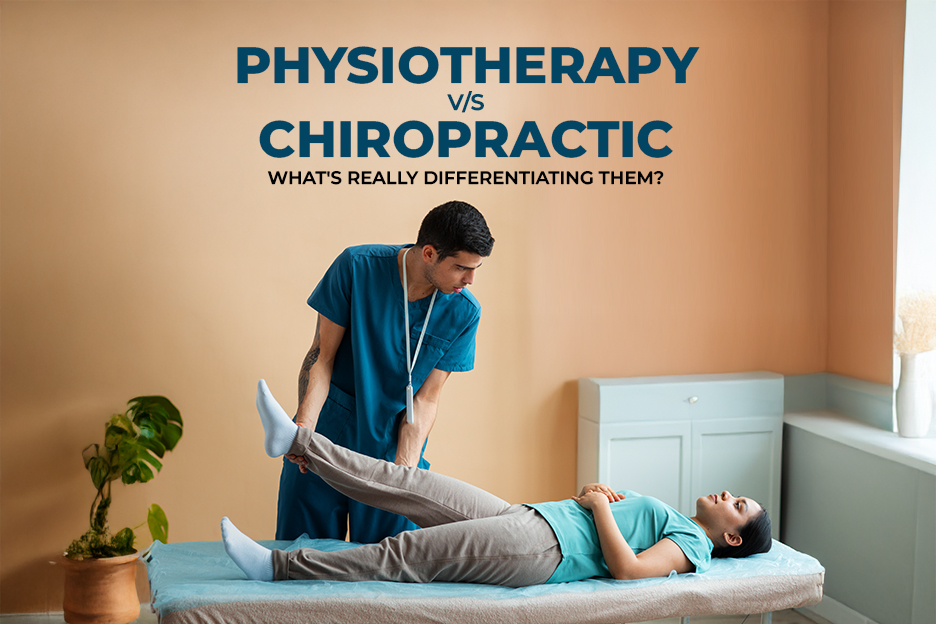
13 Nov 2025
Alzheimer’s Disease Causes, Symptoms & More
Alzheimer’s Disease is one of the most common causes of memory loss and cognitive decline among older adults. It’s a progressive neurological disorder that affects how the brain functions — slowly damaging memory, thinking ability, and behavior.
At Arora Neuro Centre, we understand how deeply Alzheimer’s can affect not just the individual but the entire family. Early recognition, expert care, and compassionate management can help patients maintain independence and dignity for as long as possible.
What Is Alzheimer’s Disease?
Alzheimer’s Disease is a degenerative brain disorder that leads to a gradual decline in memory, reasoning, and the ability to perform daily activities. It primarily affects older adults, though early-onset cases can appear before the age of 65.
The disease causes abnormal protein deposits — called amyloid plaques and tau tangles — to build up in the brain. These disrupt communication between nerve cells, eventually leading to brain cell death and brain shrinkage over time.
While mild memory lapses are common with aging, Alzheimer’s is not a normal part of getting older. It is a medical condition that requires early diagnosis and professional management.
What Causes of Alzheimer's Disease
The exact causes of Alzheimer’s disease are still not fully understood. However, research has identified several factors that increase the risk of developing the condition:
1. Age
The risk of Alzheimer’s increases significantly after age 65. However, it can sometimes affect people in their 40s or 50s (early-onset Alzheimer’s).
2. Genetics and Family History
A family history of Alzheimer’s can raise your risk. Certain genes, like APOE-e4, are linked to a higher likelihood of developing the disease.
3. Lifestyle and Heart Health
Conditions that affect blood flow and heart health — such as diabetes, hypertension, obesity, smoking, and high cholesterol — can also damage brain vessels, raising the risk of Alzheimer’s.
4. Brain Injury
Traumatic brain injury (TBI) or repeated head trauma can increase the chances of developing dementia later in life.
5. Environmental and Lifestyle Factors
Poor diet, lack of physical activity, and limited mental stimulation may contribute to the disease’s onset.
Alzheimer Disease Symptoms
The symptoms of Alzheimer’s appear gradually and worsen over time. Recognizing them early allows doctors to begin treatment and support promptly.
Here are the common Alzheimer disease symptoms to watch for:
1. Memory Loss
Frequent forgetfulness, especially of recent events, names, or conversations. Patients may repeat questions or rely increasingly on notes or family members for reminders.
2. Confusion and Disorientation
Difficulty understanding time, location, or familiar surroundings. A person may get lost in places they know well.
3. Communication Problems
Struggling to find the right words, follow a conversation, or understand written and spoken language.
4. Changes in Mood or Personality
Individuals may become anxious, irritable, or depressed. They might withdraw socially or show unusual aggression or suspicion.
5. Difficulty Performing Familiar Tasks
Trouble managing finances, cooking, or handling personal hygiene can be early warning signs.
6. Poor Judgment or Decision-Making
Patients might make unsafe choices — such as wearing inappropriate clothing for the weather or trusting strangers.
7. Decline in Motor Skills
In later stages, Alzheimer’s can affect movement and coordination, increasing the risk of falls.
Stages of Alzheimer’s Disease
Alzheimer’s progresses through several stages:
-
Mild (Early Stage): Minor memory lapses and slight difficulty concentrating. The person can still live independently but may need reminders.
-
Moderate (Middle Stage): Increased forgetfulness, confusion, and difficulty performing daily activities. Behavioral changes become more noticeable.
-
Severe (Late Stage): Significant memory loss, inability to recognize loved ones, and dependence on others for daily care. Physical health may also deteriorate.
Diagnosis of Alzheimer’s Disease
Diagnosing Alzheimer’s requires a detailed evaluation by a neurologist. At Arora Neuro Centre, diagnosis involves:
-
Neurological examination to assess memory, reflexes, and coordination.
-
Cognitive testing to evaluate attention, language, and problem-solving skills.
-
Brain imaging (MRI or CT scans) to rule out other causes of dementia.
-
Blood tests to identify underlying health issues.
Early diagnosis helps in planning treatment, managing symptoms, and improving quality of life.
Treatment and Management Options
While there is currently no cure for Alzheimer’s, timely intervention can help slow progression and improve symptom control. The following treatment and management options are commonly recommended:
1. Medications
-
Cholinesterase inhibitors (e.g., donepezil, rivastigmine) improve communication between nerve cells and help with memory and reasoning.
-
Memantine regulates glutamate activity in the brain to enhance learning and memory.
-
In some cases, antidepressants or antipsychotics may be used to manage mood or behavioral symptoms.
2. Cognitive Therapy and Memory Exercises
Structured brain activities such as puzzles, reading, or memory games can help maintain cognitive function and delay decline.
3. Lifestyle Modifications
-
Physical activity to improve circulation and brain health.
-
Nutritious diet, rich in antioxidants and omega-3 fatty acids.
-
Social engagement and mental stimulation through hobbies or group activities.
4. Supportive Care and Counseling
For patients and caregivers, emotional support is vital. Counseling helps families cope with the emotional and practical challenges of the disease.
Read:- Alzheimer’s Disease Treatments and Therapies Guide
Living With Alzheimer’s Disease
Living with Alzheimer’s disease requires patience, planning, and compassion. Both patients and caregivers benefit from understanding the condition and setting realistic expectations.
For Patients:
-
Maintain a consistent routine to reduce confusion.
-
Use reminders and visual cues to stay organized.
-
Engage in gentle exercise and creative activities like music or art therapy.
For Caregivers:
-
Join caregiver support groups for shared experiences and advice.
-
Ensure a safe environment — remove tripping hazards, label rooms, and keep essentials accessible.
-
Take regular breaks to manage stress and prevent burnout.
At Arora Neuro Centre, we provide ongoing guidance for families caring for loved ones with Alzheimer’s. Our holistic approach combines medical treatment, counseling, and lifestyle strategies to ensure compassionate, continuous care.
Final Thoughts
Alzheimer’s Disease is not just a condition of memory loss — it’s a journey that affects every aspect of life. With early diagnosis, medical support, and emotional understanding, patients can continue to lead fulfilling, dignified lives.
At Arora Neuro Centre, our expert neurologists are committed to providing advanced diagnosis, personalized treatment, and comprehensive support for those affected by Alzheimer’s and other neurological disorders. Because every mind deserves care, compassion, and the chance to remember life’s beautiful moments.
Recent Blogs
-

We will work with you to develop individualised care plans
Arora Neuro Centre maintains awareness about the vital association between diabetes and neurological health issues where diabetic patients face greater stroke susceptibility.
-

How Diabetes Affects Brain Health: The Hidden Risks
Typically diabetes causes problems with blood sugar management as well as negative effects on heart organs and kidneys.
-

Can Diabetic Neuropathy Be Prevented? What You Need to Know
One of the typical complications arising from diabetes affects nerves through diabetic neuropathy which results in various symptoms from muffled sensation and tingles to intense pain.
-

Psychotherapy for Anxiety: Techniques That Really Work
Anxiety is one of the most common mental health conditions in India and around the world. It can affect anyone, whether you’re a student under pressure, a working professional managing deadlines, or a parent juggling multiple responsibilities
-

Physiotherapy vs. Chiropractic: What's Really Differentiating Them?
Physiotherapy and chiropractic care both aim to relieve pain and improve mobility, but they differ in approach. Physiotherapists focus on exercise, movement, and rehabilitation, while chiropractors primarily use spinal adjustments to treat musculoskeletal issues. Understanding these differences can help you choose the right treatment.
